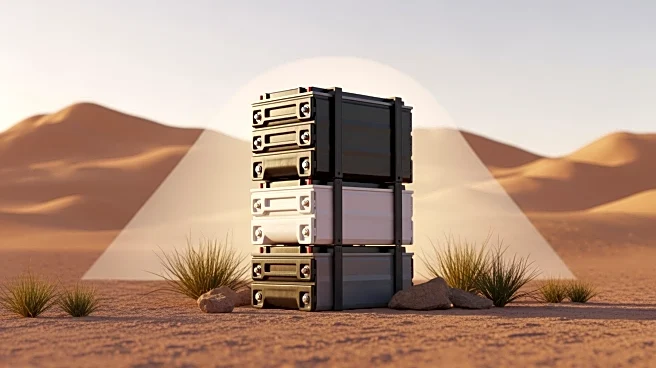What's Happening?
In Jordan, self-taught mechanics are repurposing spent electric vehicle (EV) batteries for home energy storage, addressing the lack of formal infrastructure for dealing with end-of-life batteries. This innovative approach is driven by the growing number
of EVs in the country, which now account for more than half of total vehicle imports. Mechanics like Shadi Jameel are reconditioning Tesla car battery modules, which are then used in homemade energy storage systems connected to solar panels. This practice not only reduces electricity bills but also stabilizes the electricity grid as Jordan aims to increase its renewable energy share.
Why It's Important?
The initiative highlights the potential for informal sectors to contribute to sustainable energy solutions, especially in regions lacking formal recycling infrastructure. By extending the life of EV batteries, these mechanics are helping to reduce waste and environmental impact while providing cost-effective energy solutions. This approach also supports Jordan's climate strategy, which aims to cut emissions by 31% by 2030. However, the informal nature of these practices raises safety concerns, underscoring the need for regulation and formal training programs.
What's Next?
The Jordanian government is focusing on addressing the spent-battery crisis, with plans to establish formal recycling and reconditioning channels. This includes potential investment in collection centers and training programs to ensure safe and efficient battery management. The success of these initiatives could position Jordan as a leader in sustainable battery management in the Middle East, attracting further investment and innovation in the sector.
Beyond the Headlines
The story underscores the importance of grassroots innovation in addressing environmental challenges, particularly in developing regions. It also highlights the need for policy frameworks that support informal sectors while ensuring safety and quality standards. As the global demand for EVs continues to rise, similar initiatives could emerge in other countries, contributing to a more sustainable and circular economy.
















